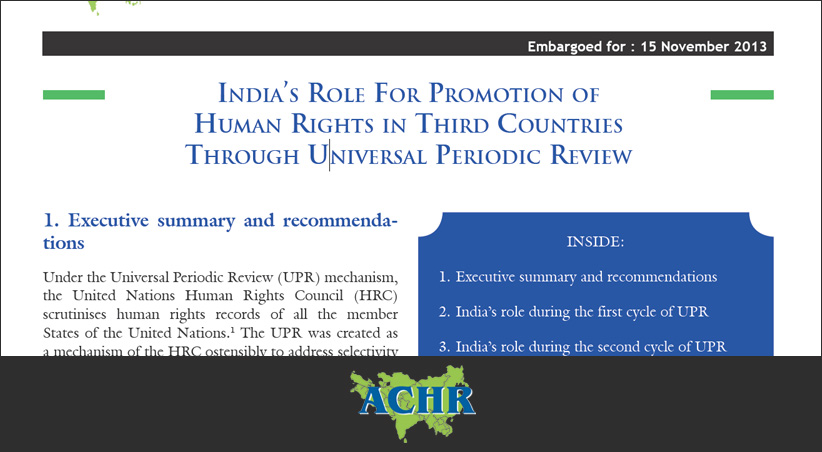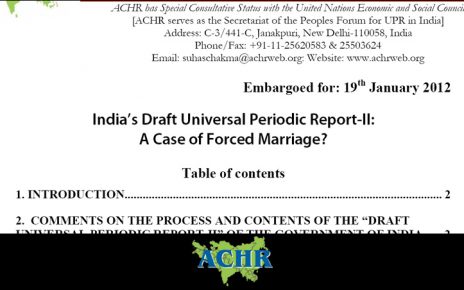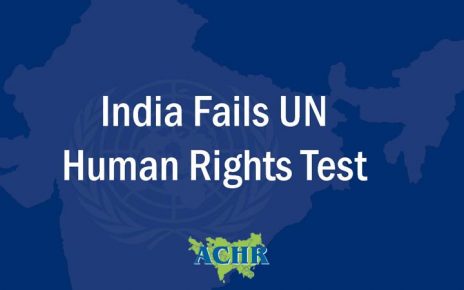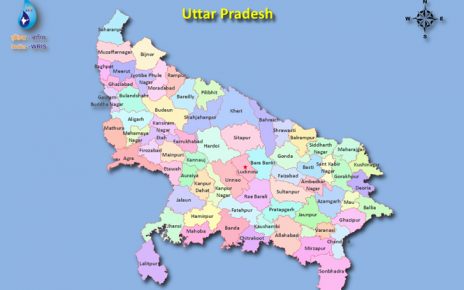Under the Universal Periodic Review (UPR) mechanism, the United Nations Human Rights Council (HRC) scrutinises human rights records of all the member States of the United Nations. The UPR was created as a mechanism of the HRC ostensibly to address selectivity and politicization under then UN Commission on Human Rights.
Since its first session in April 2008, the UPR has essentially removed the taboo on socalled non-interference in internal affairs of a member State of the UN. Not raising questions or not making recommendations as a strategy to avoid scrutiny of one’s human rights record is not an option available to any Member State under the UPR. During the first cycle of the UPR, human rights records of the 192 member States of the United Nations were reviewed from 2008 to 2011 and about 20,000 recommendations were made by over 160 member States.
While Indian civil society organisations focused exclusively on scrutising India’s human rights record at the UPR4, they paid little or no attention to India’s role in scrutinising human rights records of third countries. This is despite that India has a prominent role to play for promoting human rights in third countries through the UPR.
During the first cycle, India participated in the UPR deliberations on 107 countries while it remained silent on the rest 84 countries. Out of 107 countries on which India intervened, it made a total of 38 recommendations on 28 countries while comments and questions were asked from 79 countries.
During the Second Cycle upto 16th Session held on 22 April – 3 May 2013, a total of 55 UN member States including India were reviewed. India also made comments on ten member States without any recommendations while it made 37 specific recommendations with comments on 19 member States.
Comparatively, India has slightly improved its performance during the second cycle of the UPR. In terms of number of recommendations India made 37 specific recommendations on 19 member States until the 16th Session of UPR as against 38 recommendations on 28 out of the 107 member States during the first cycle. Further, India improved its recommendations on Algeria, Bahrain, Ecuador, France, Japan, Romania, United Arab Emirates, Germany, Canada and Cuba. However, India made no recommendations despite making comments on Indonesia, Ukraine, Sri Lanka, Turkmenistan, Uzbekistan, Bangladesh and Russian Federation. India also did not follow up the recommendations it made during the first cycle.
India ought to further improve its performance at the UPR on a number of areas. First, India needs to increase its geographical focus beyond the Western countries. Second, at the UPR, India needs to promote its experiences of addressing discrimination through affirmative action. This has strong resonance including for the Romas in Europe and is provided under the International Convention on the Elimination of All Forms of Racial Discrimination (ICERD). Third, India needs to follow up recommendations it makes in the previous sessions. Fourth, India needs to expand thematic focus beyond its favourites issues like the rights of the child, the rights of the persons with disabilities and the NHRIs.




